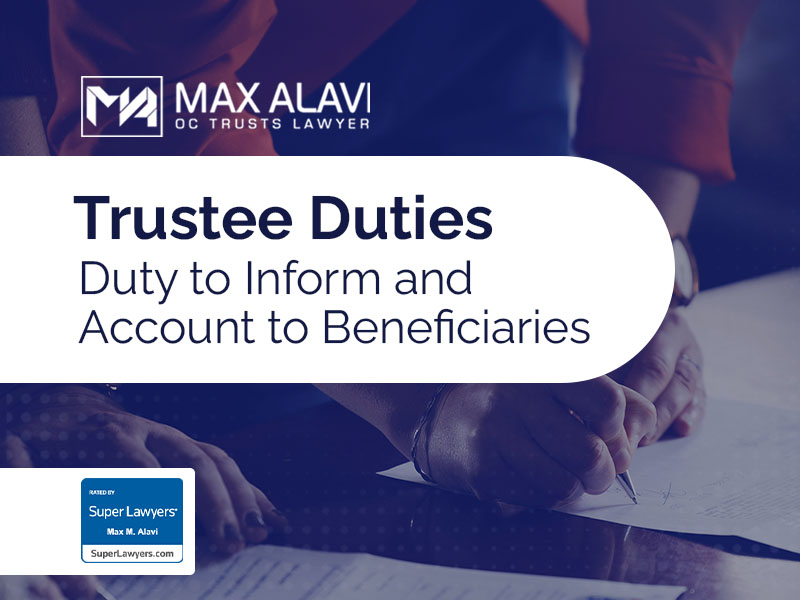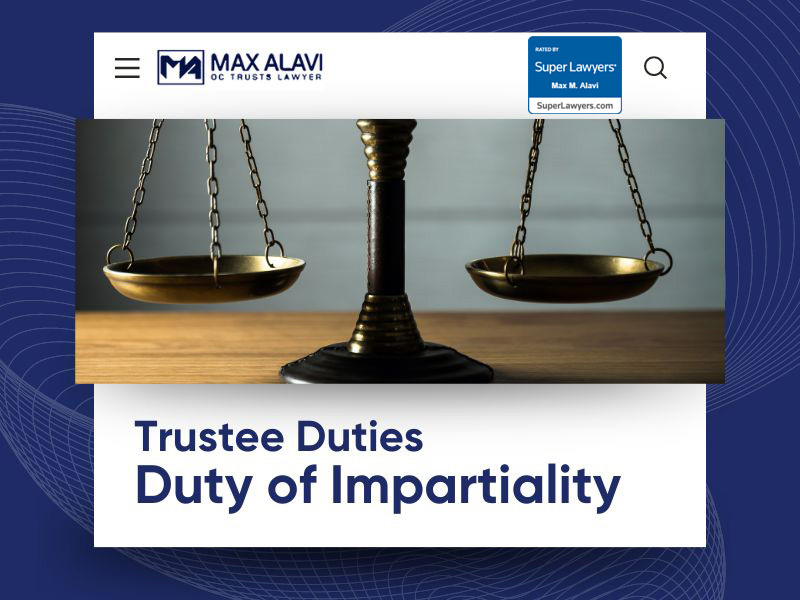As the final installment of our Trustee Duties series, it is crucial to shed light on the important trustee responsibilities of providing information and accounting to trust beneficiaries. Since trustees play a pivotal role in ensuring transparency and accountability within the trust administration process, these fiduciary duties enable trustees to uphold the trust’s integrity and safeguard the interests of the beneficiaries.
Two sections of the California Probate Code highlight these essential fiduciary duties. In Section 16060, the trustee’s duty to inform encompasses the obligation to keep beneficiaries reasonably informed about the trust. In Section 16062, the duty to account mandates that trustees provide beneficiaries with accurate reports about the trust administration. These reports typically show details such as the trust’s assets, investments, transactions, expenses, and distributions.
One of the important aspects of the duty to inform is that the trustee must provide certain information to all heirs and beneficiaries who are named in a trust after the creator of the trust has passed away or becomes incapacitated. The triggering issue is that the trust has become irrevocable and therefore the named beneficiaries are now considered “vested beneficiaries”. This information, also known as a California Probate Code Section 16061.7 Trustee Notification, should include the name of the person who created the trust, a notice regarding the 120-day period in which the trust can be contested, and more. Depending on circumstances, the list of people who are entitled to notice and who should be notified regardless of their beneficiary status can vary.
Case Study on Duty to Account: Estate of McCabe (1950)
A trustee also has the essential responsibility of providing a proper accounting of the trust finances so that the trust beneficiaries can know the details about their distributions. In the California case of Estate of McCabe, the court determined that the trustee breached her fiduciary duty to provide an accounting to the beneficiaries. Unfortunately, the trustee had mingled the trust funds with her own. Also, she provided an insufficient account with vague and general estimates of the expenses since she failed to keep any records, checks, and receipts of the expenses. The rules for accounting are very strict and tilted to put the burden on the Trust (fiduciary) and guessing at what is required from the trustee is not a wise choice.
Protect Your Inheritance with Skilled Trust Litigation Attorneys Today
At Max Alavi, Attorney at Law, APC, octrustslawyer.com, our team of expert trust administration/litigation attorneys is dedicated to assisting trustees in navigating their legal responsibilities with diligence and integrity. With decades of combined experience, our attorneys confidently defend trustees who have already diligently fulfilled their duties and shield them from the demands of beneficiaries. Our law firm is also committed to advocating for trust beneficiaries who have been wronged by neglectful trustees and strives to hold them accountable for their fiduciary responsibilities. Don’t hesitate to reach out to us today to discuss how we can assist you in meeting your unique trust litigation needs and achieving a favorable resolution.






